Frieda Toranzo Jaeger, Uber: Déjame entrar
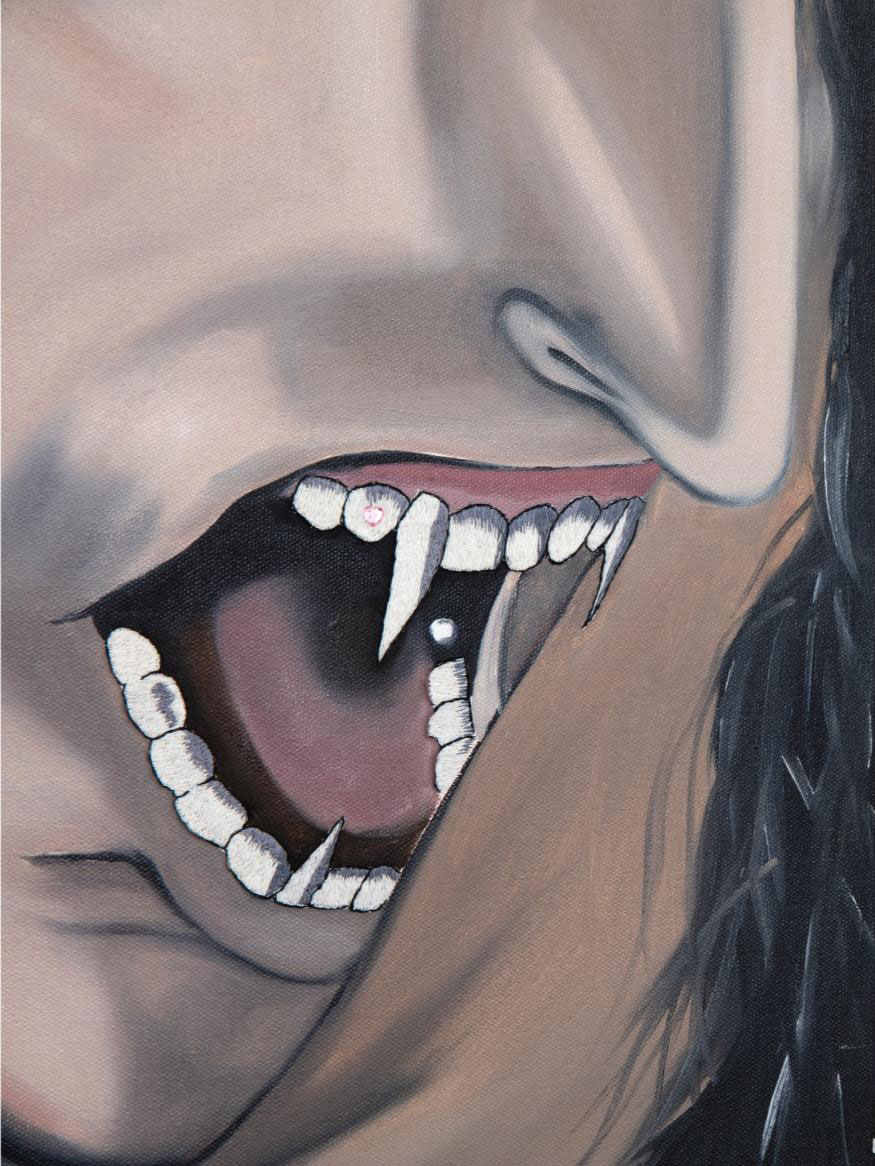
Travesía Cuatro, Mexico City
06.02.2024 - 23.03.2024
One of the main characteristics of vampires is that they are inevitably seductive. It’s not that their victims simply want to be butchered, but they are often attracted to their apparent youth, their power, their straightforward existence, they carry on extracting life and living forever. Even Marx, a very Gothic writer, couldn’t help himself from using the vampire metaphor a few times in Das Kapital, in which ‘capital is dead labour, and lives the more, the more labour it sucks’ — the bourgeoisie and its gargantuan lust for exploitation is a blood-sucking curse.
For Frieda Toranzo Jaeger, our Uber of today is just the latest iteration of that cursed thirst, another manifestation of the group of abstractions that materially rule over our lives. Uber represents the epitome of the gig-economy logic, in which our every free moment, our very precariousness is sold back to us as an opportunity for pecuniary advancement. Uber simply makes us freer, we’re working smarter by subjecting ourselves, our bodies and our times to its miserable logic. It is always a good time to be making some pesos! Once upon a time it was religion, God was the unquestionable logic — one could say that before we were chasing dollars we were after God’s grace, his mercy. The philosopher Sylvia Wynter very keenly names the radical transformation from the medieval homo religiosus, whose entire reason for existence was God’s will, to the homo oeconomicus of today, centered around the all-powerful Capital: it has now fully sunk its teeth in our supple necks and mesmerized us into believing it is the only way, the single most efficient and merit-worthy way of living.
For this show, Frieda delivers this material-historical critique in lavish form, here is everything anyone could ever want from a painting: a sweeping Gothic narrative, melodramatic posing, sexual tension, glittery blood, evil alien ships, even cherubs. The series is inspired by Paolo Veronese, recognized for being one of the Three Venetian Colorists alongside Titian and Tintoretto. When painting his massive, slightly-heretic compositions, Veronese would frequently use this trick of not stopping at the frame, a cherub would peek from a window, only a third of their chubby body visible; or they would stand at Saint Helena’s feet in a corner, struggling off the frame with a cross. This had the point of making the plane appear larger, not merely reduced to what was in it, and through our mental completion, we could read it as much more expansive.
This visual trickery served Frieda, as in her own contemporary fable she too is representing powers beyond our comprehension, what Mark Fisher once called the ‘thanatophoric fatalism’ of capital, our yearning for entropy in the form of our endless desire tipping over any kind of equilibrium — the consumption that fuels capital and its incessant transformations, adaptations, annihilations. And what better encapsulates this deathly desire today than our love for cars? We know they’re terrible for us, and yet they continue to occupy a unique place within our symbolic reality. The car is both capitalism’s preternatural vehicle, a mechanism for the constant manipulation of our understanding of time/space and also a contradictory hybrid of exteriority and interiority: what Frieda calls ‘the psychological space of capitalism’.
At the peak of her saga this machinic-capital reveals itself as a Landian artifact, an alien ship inoculating us with its dystopian rationale, a mechanism of despair and de-subjectivization, that invades our minds and robs us from imagining a future. And that has been the target of Frieda’s counter-strike all along: If paintings are epistemological technology, one of the many tools used by Western tradition to colonize and re-write histories, then Frieda’s works are about that ideological occidental machinery being penetrated and vandalized by organically transmitted skills. Her goal is to destabilize, to dislocate, to accelerate into chaotic atomization, seeking the kind of desire that doesn’t fuel annihilation.
Gaby Cepeda
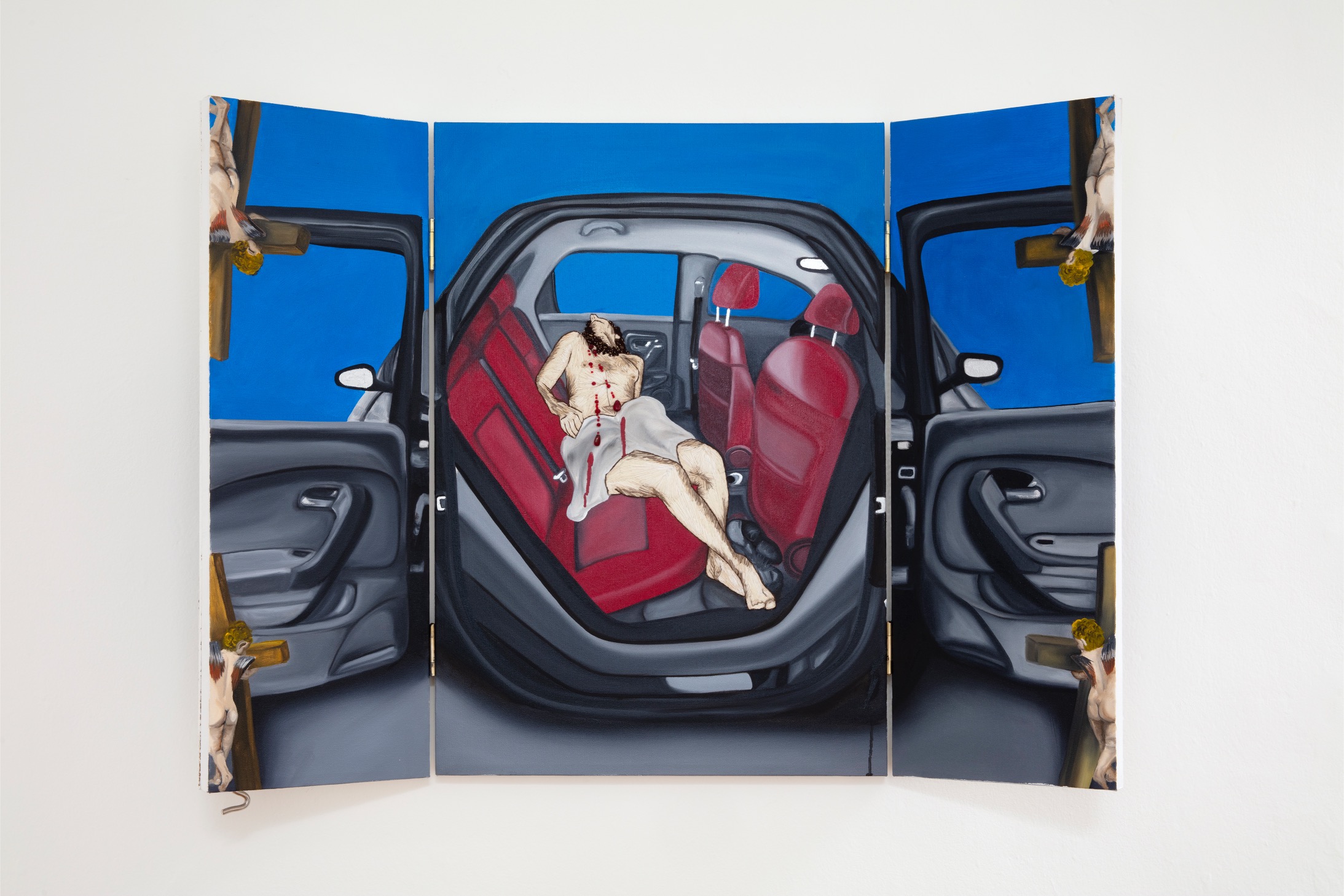
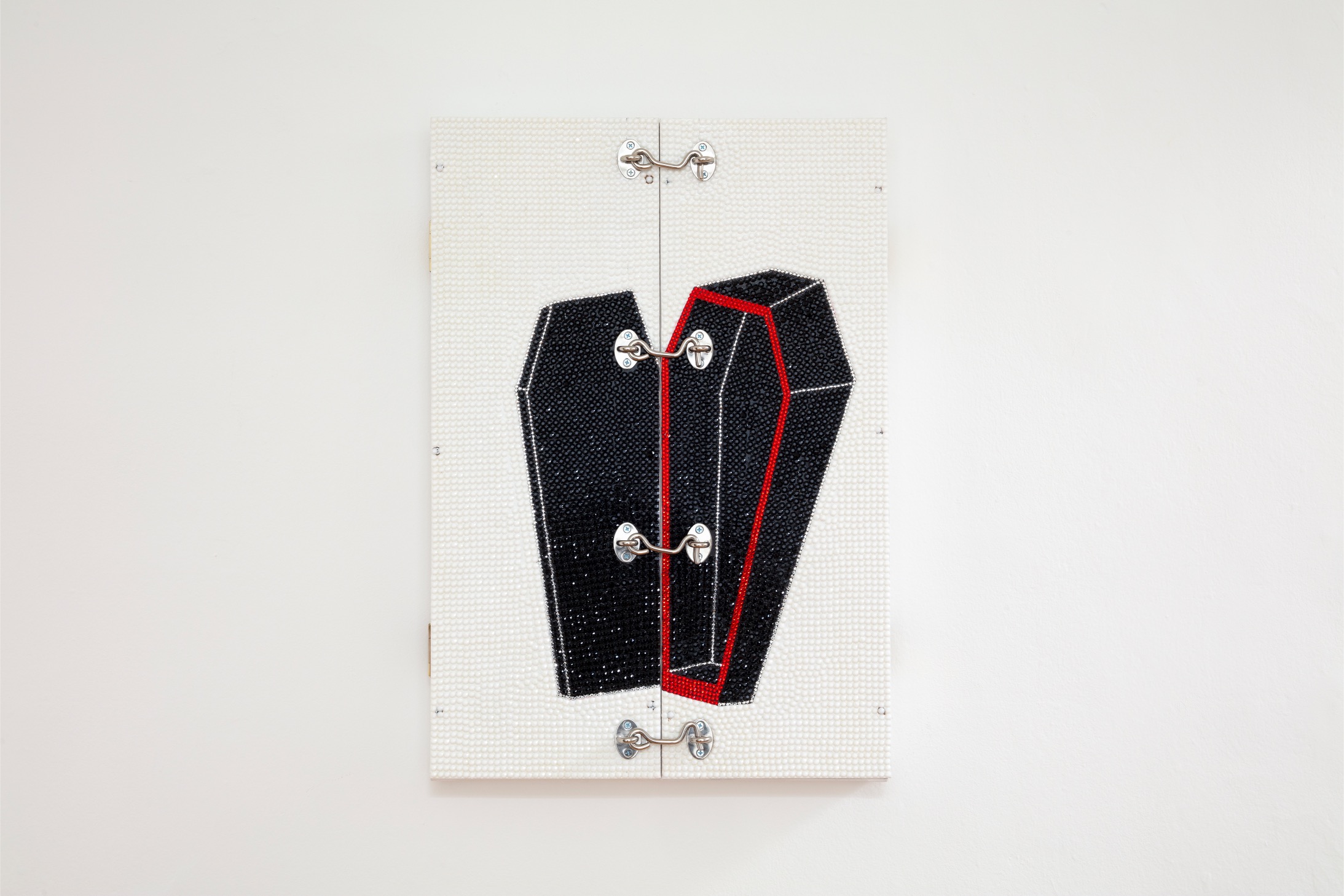
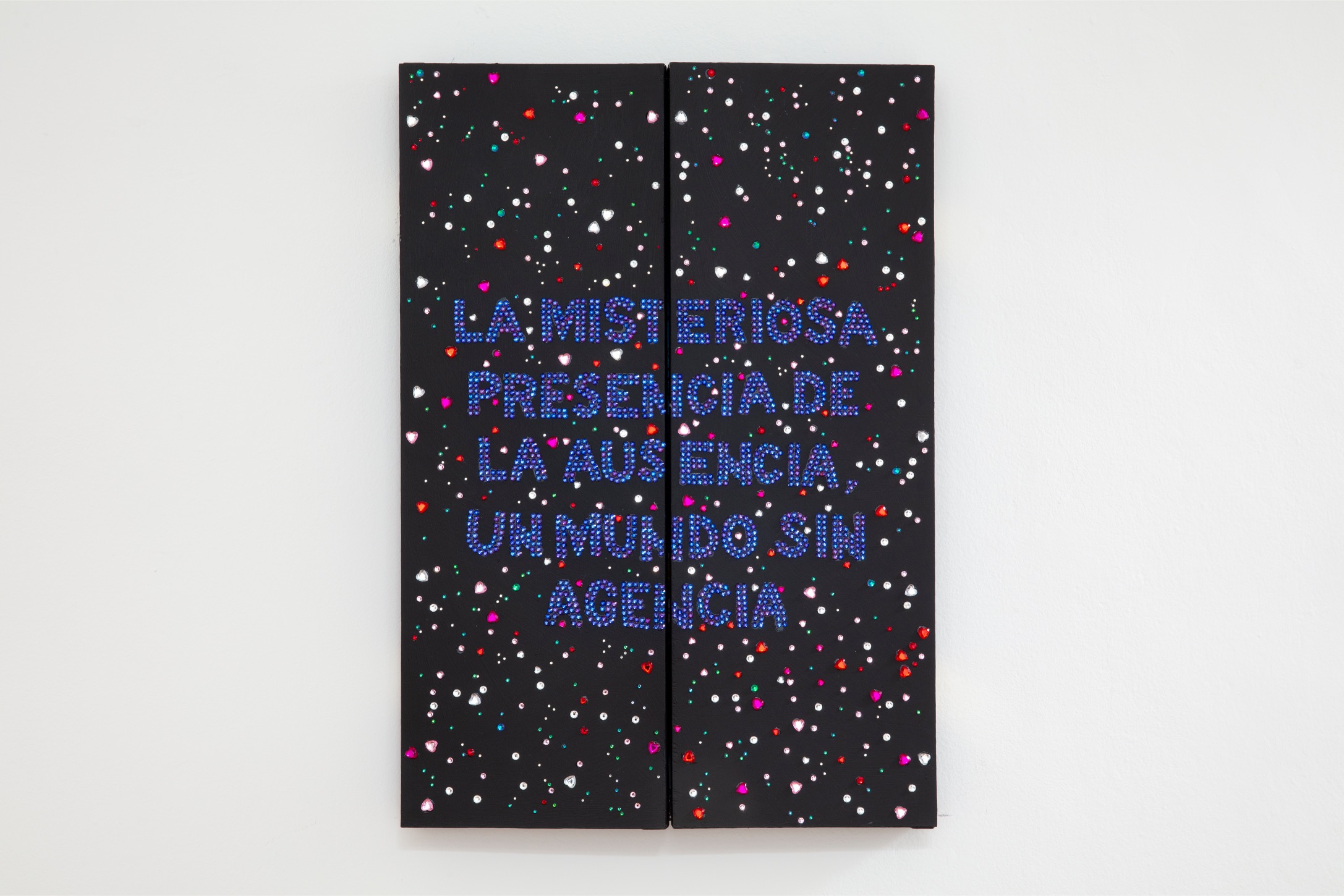
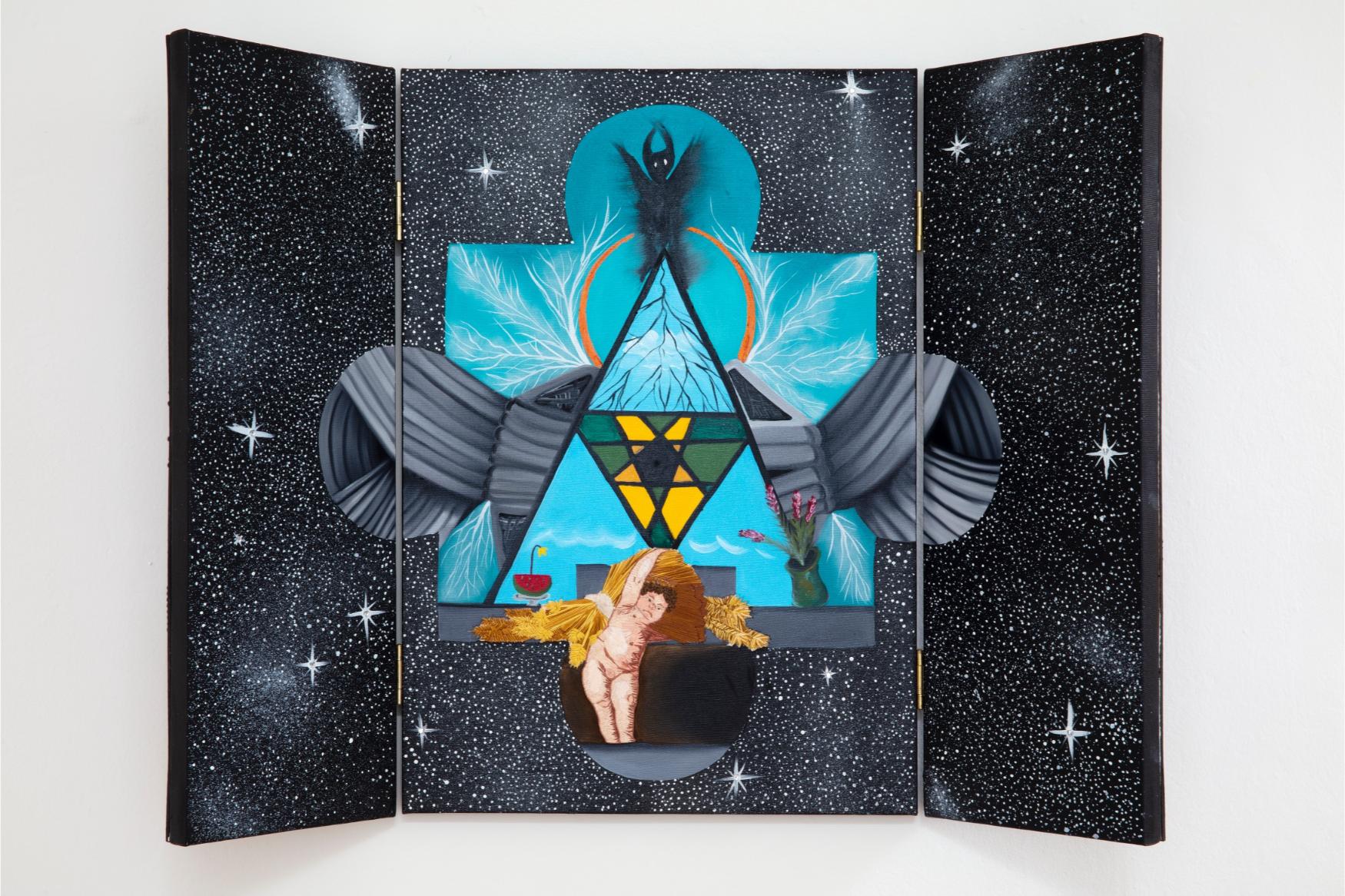
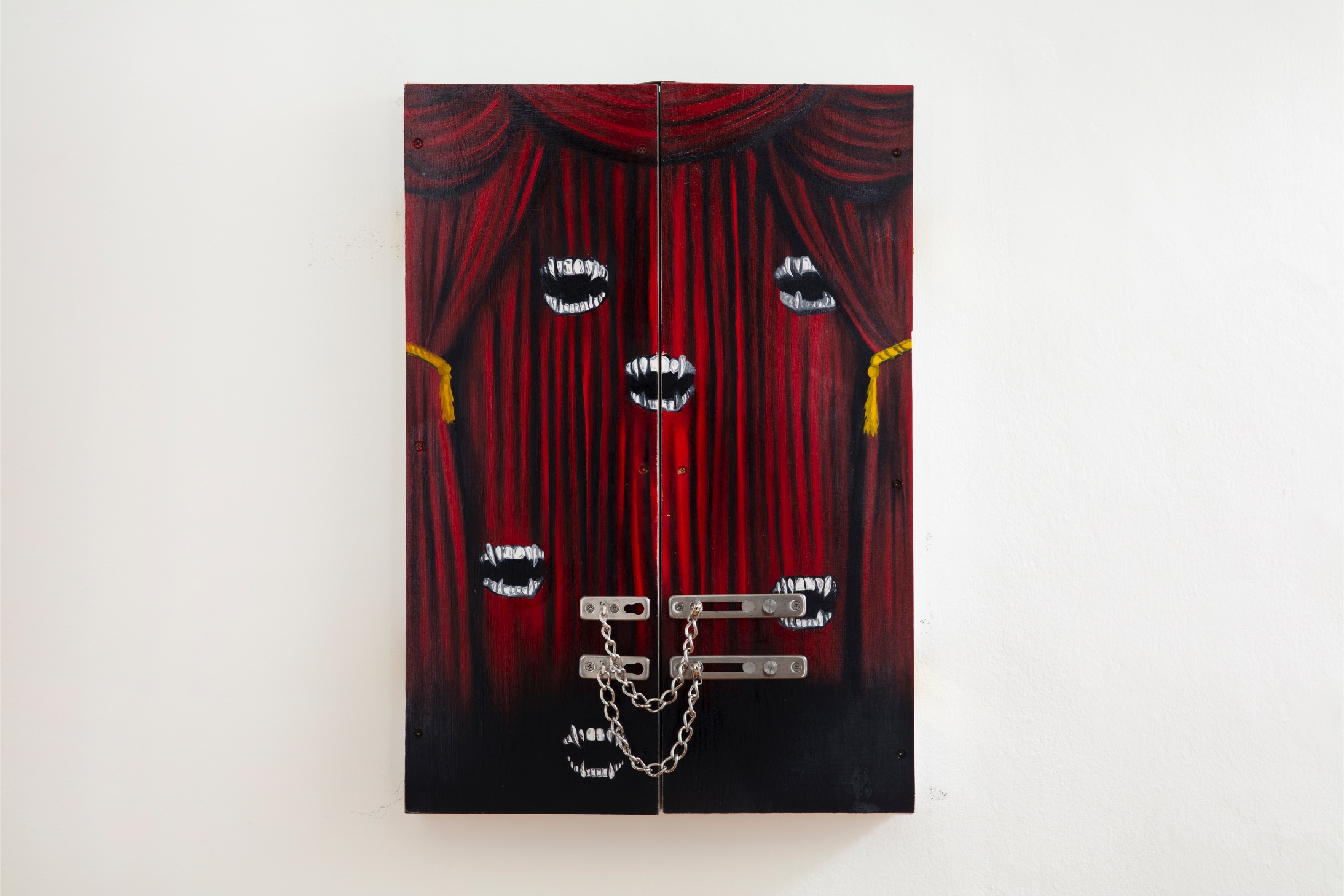
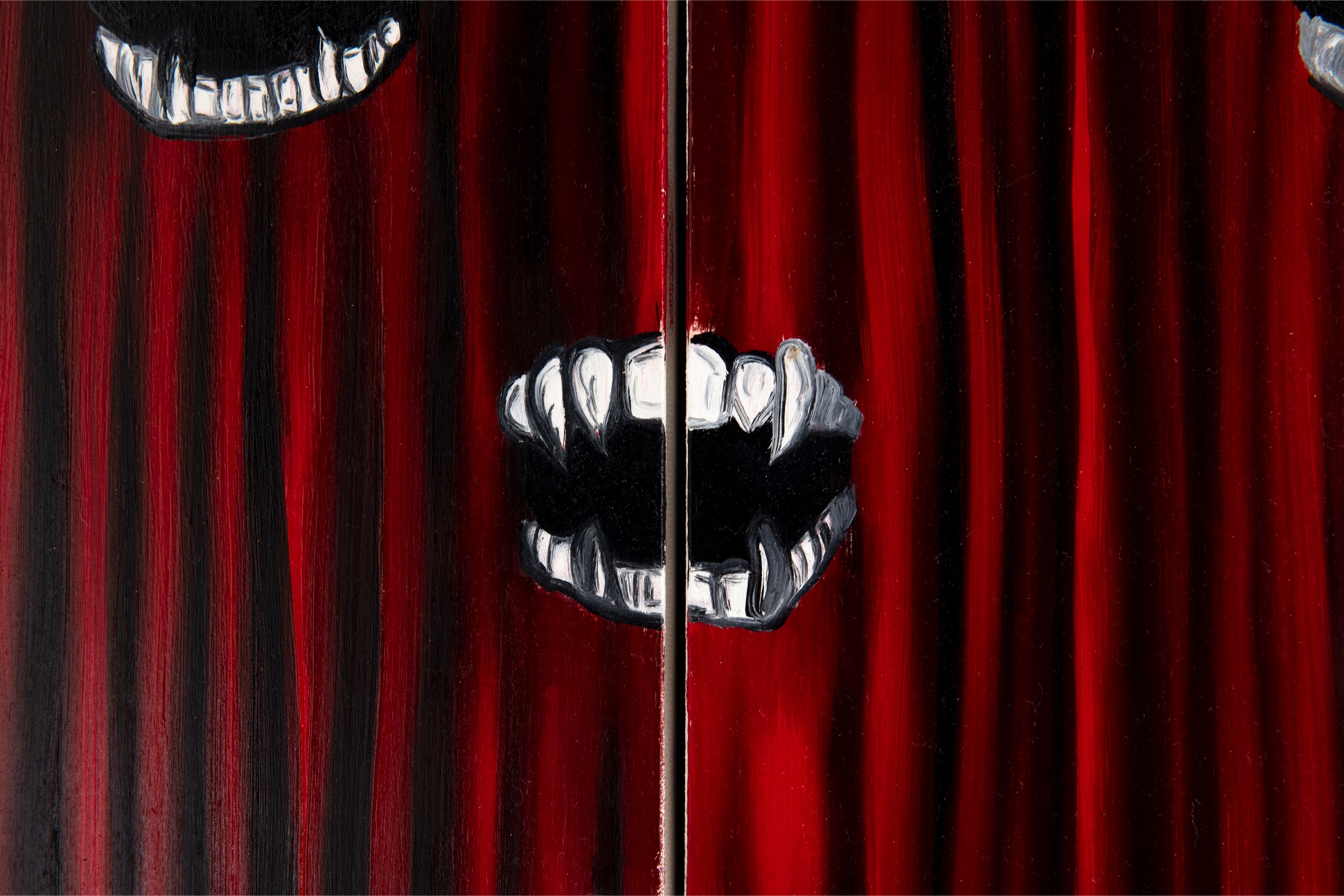
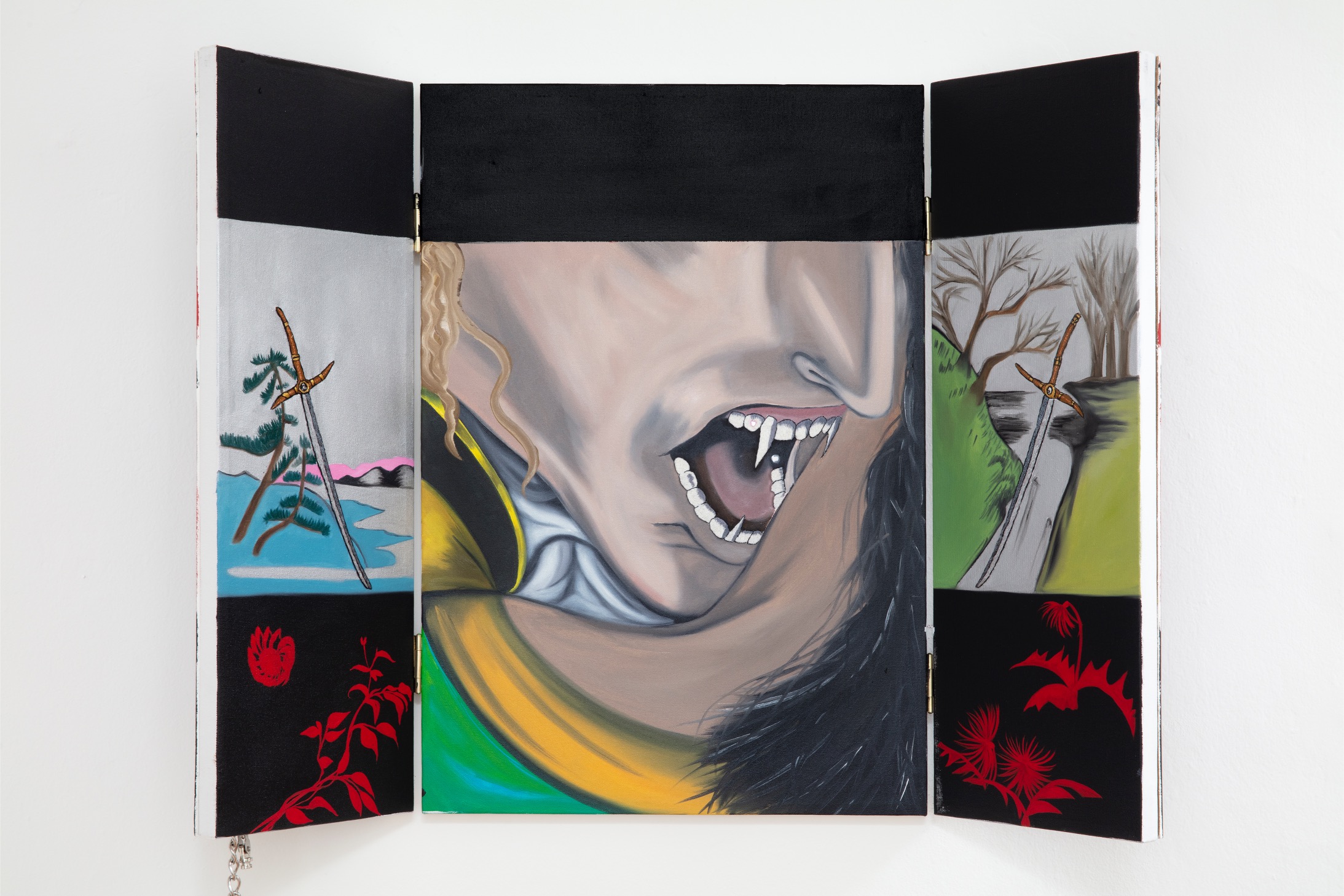
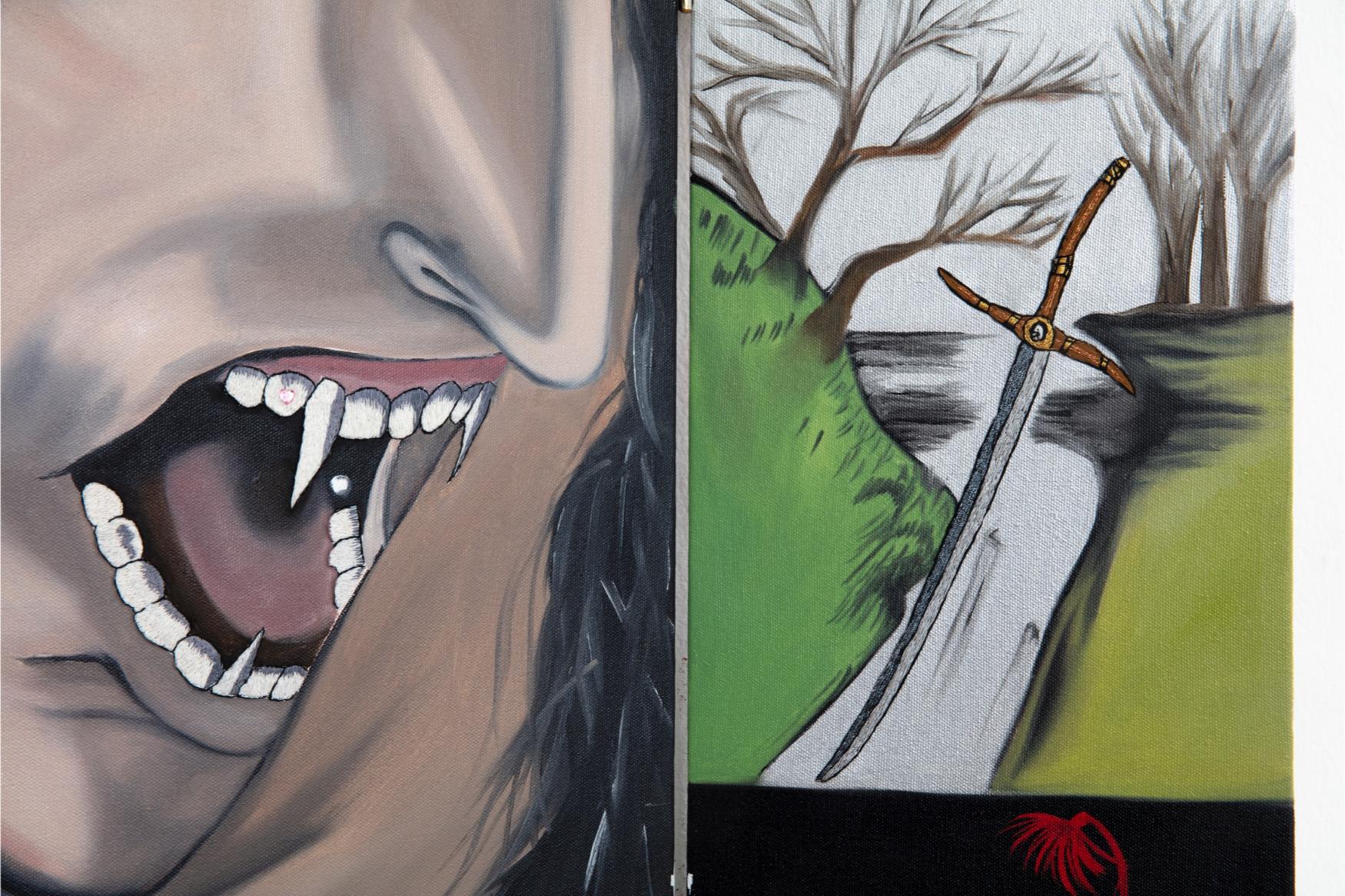
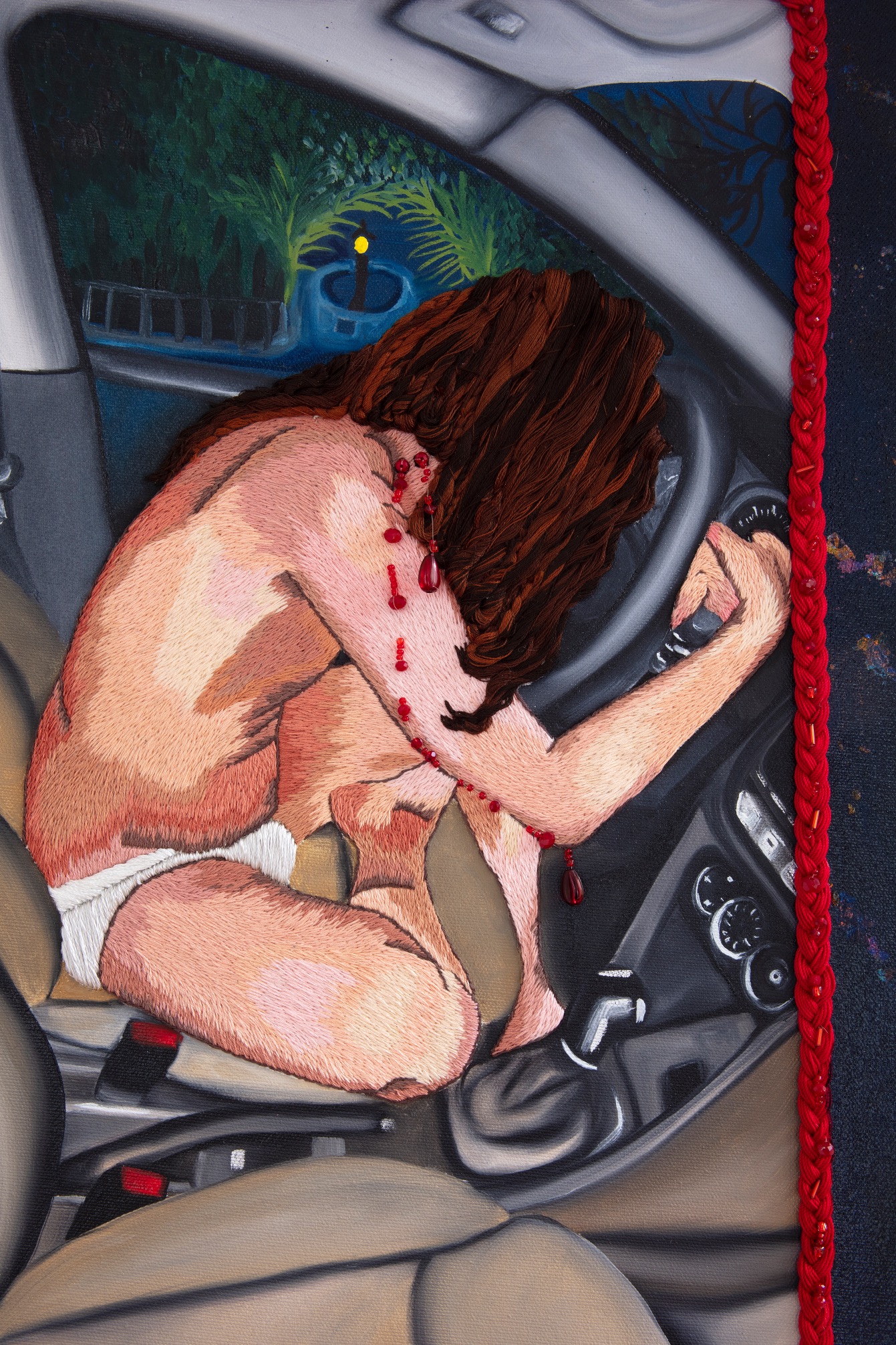
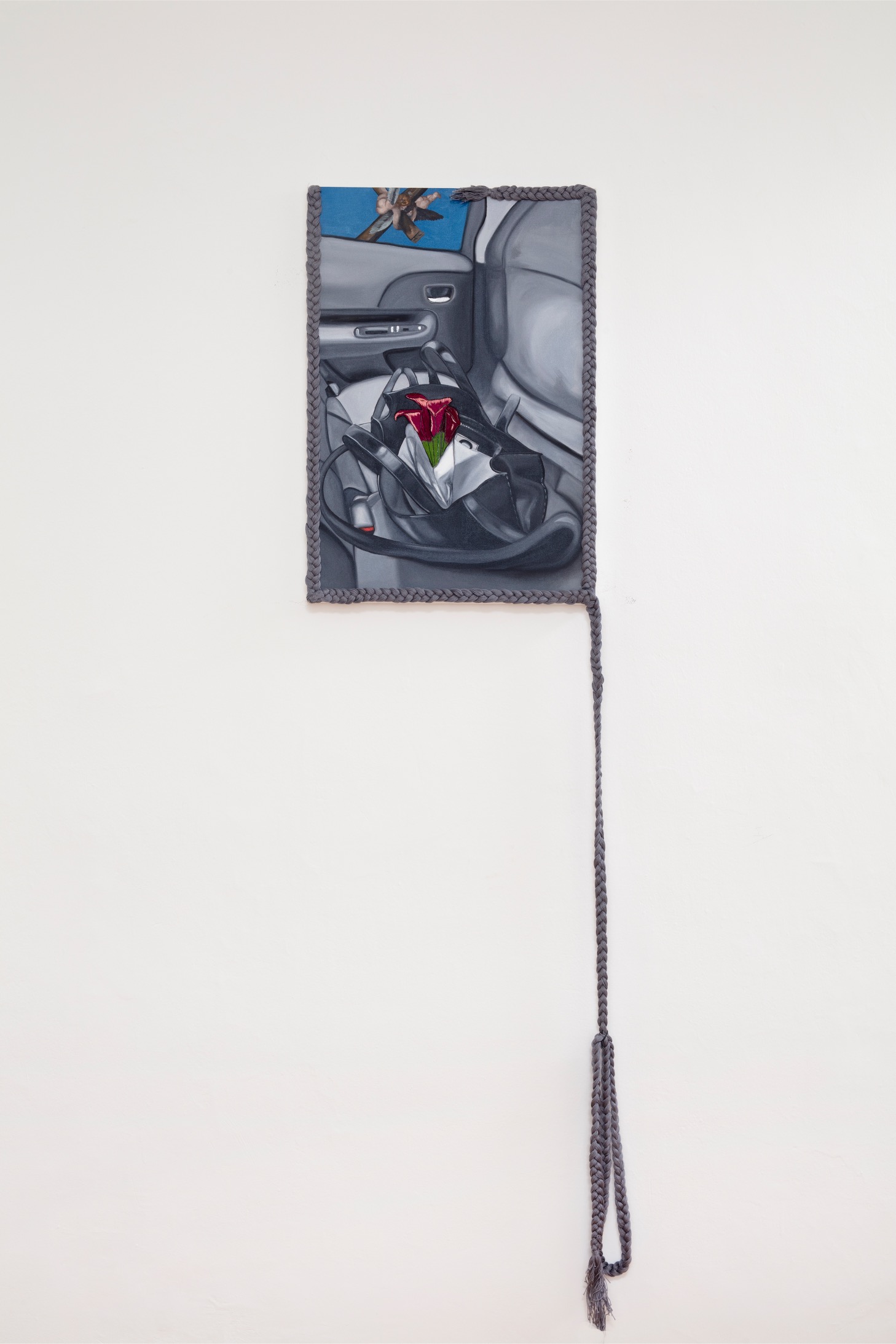
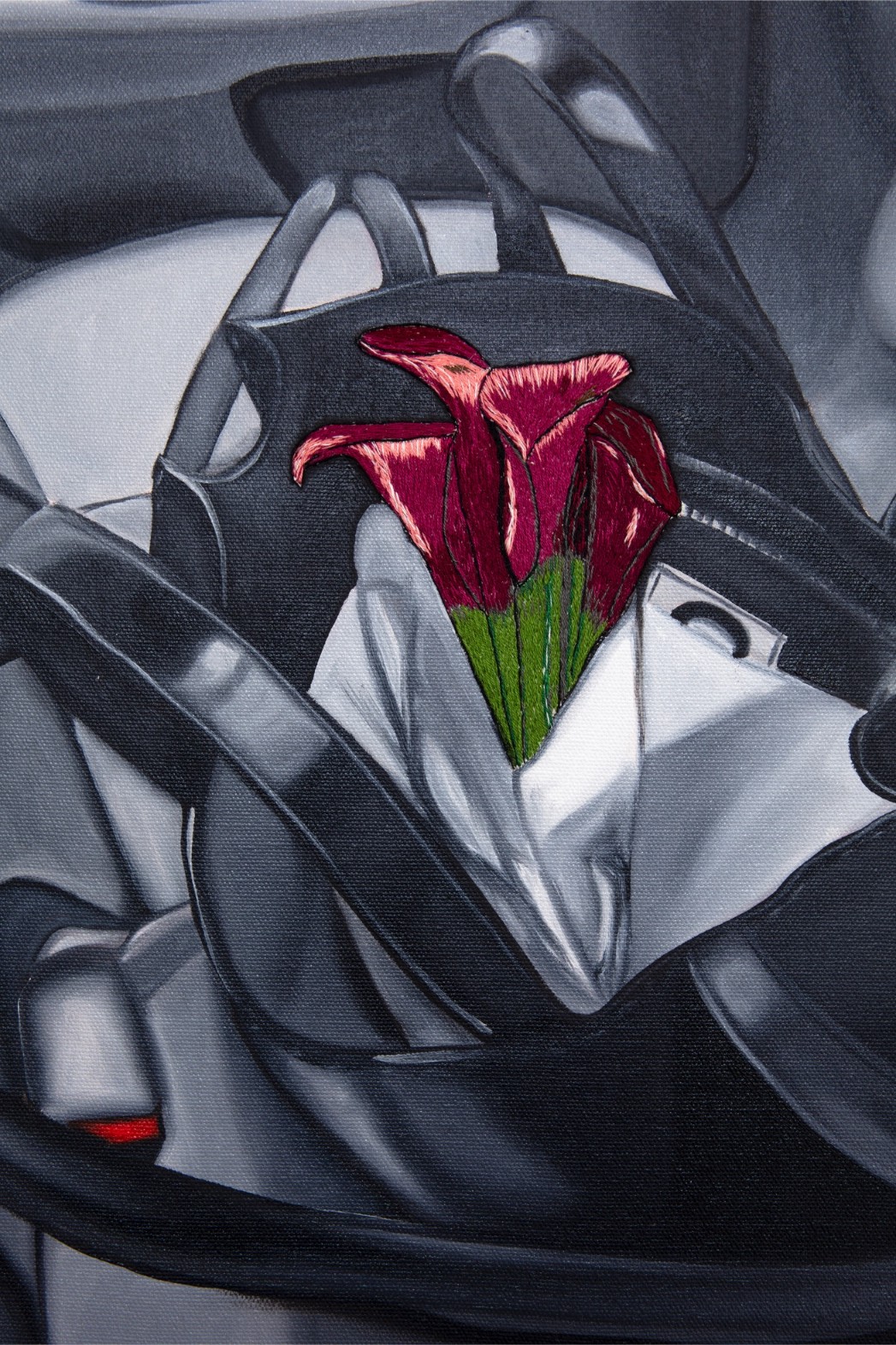
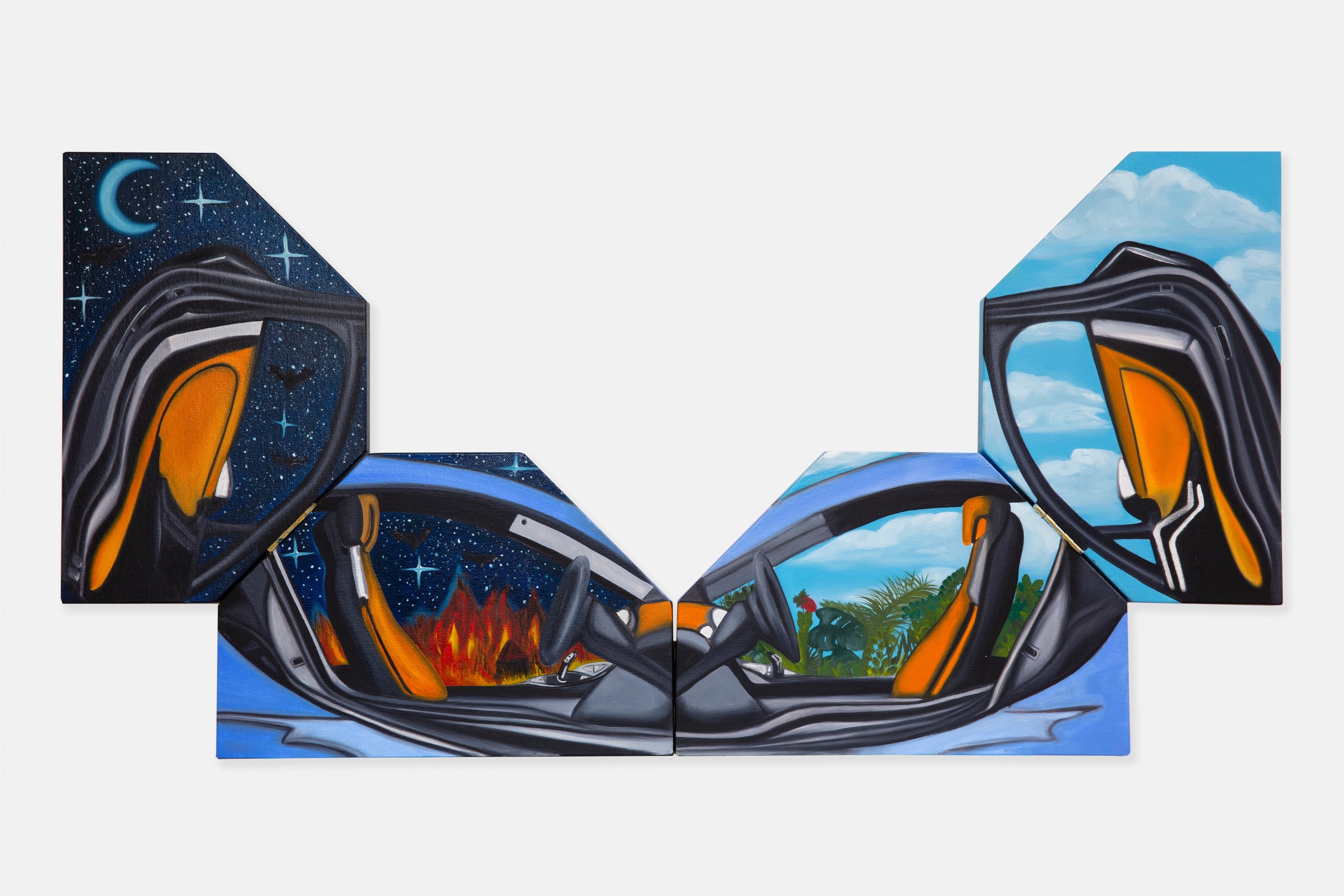
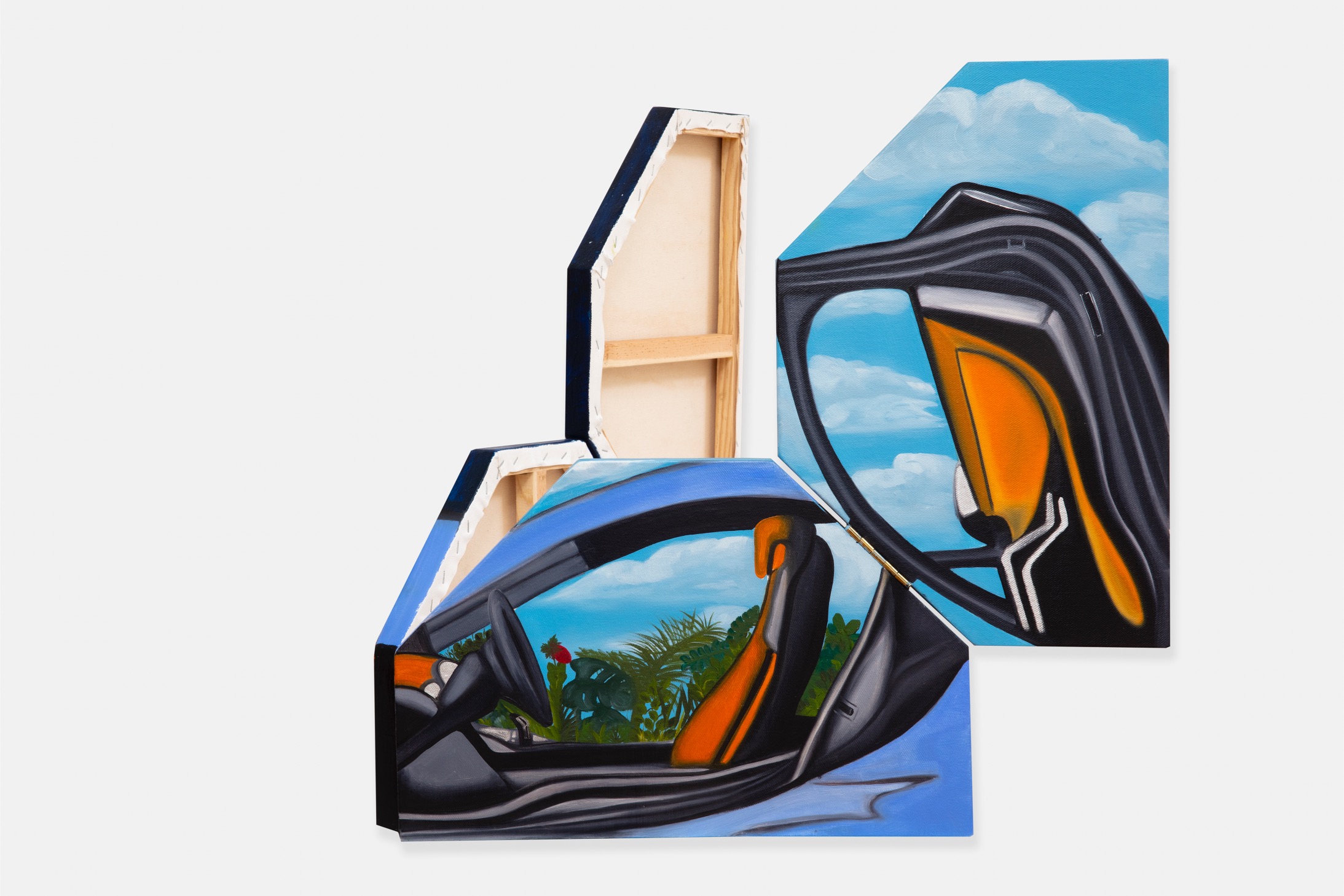
Frieda Toranzo Jaeger, Uber: Déjame entrar Installation view at Travesía Cuatro CDMX, Mexico, 2024. Photo by: Ramiro Chaves. Courtesy of Travesía Cuatro and Galerie Barbara Weiss.
